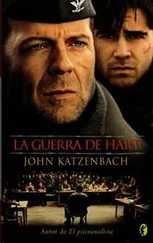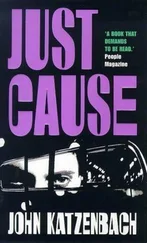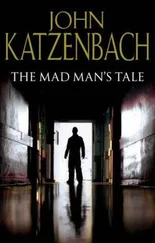Ricky realized it would not take long for someone to arrive in Durham searching for him. The license plate number noticed by the dog kennel owner fairly guaranteed that. He didn’t think it would be particularly difficult to discover that the plate belonged to Rent-A-Wreck, and soon enough, someone would show up, asking for the name of the man who’d rented that car. The issue he faced, he thought, was complex, but wrapped up in the single question: where did he want to fight the next battle? He had to choose his arena.
He returned the rental car, stopped briefly at his room, and then went directly in to his night job at the crisis hot line distracted by these questions, thinking that he did not know how much time he had purchased for himself with the ads in the Times and the Voice , but a little. The Times would run the following morning, the Voice at the end of the week. There was a reasonable likelihood that Rumplestiltskin would not act until he’d seen both. All the man knew, so far, was that an overweight and physically scarred private investigator had arrived at a dog kennel in New Jersey asking disjointed questions about the couple that records showed had adopted him and his siblings years earlier. A man hunting a lie. Ricky did not delude himself that Rumplestiltskin wouldn’t see the links, find other signs of Ricky’s existence rapidly. Frederick Lazarus, priest, would show up in inquiries in Florida. Frederick Lazarus, private investigator, arrived in New Jersey. The advantage Ricky had, he thought, was that there would be no clear-cut link between Frederick Lazarus and either Dr. Frederick Starks or Richard Lively. One was presumed dead. The other still clung to anonymity. As he took his seat at a desk in the darkened office, behind a multiline telephone, he was glad that the semester was wrapping up at the university. He expected callers with the usual stressed out, final exams despair, which he was comfortable dealing with. He did not think that anyone would kill themselves over a chemistry final, although he had heard of sillier things. And, in the deep of night, he found that he was able to concentrate clearly.
He asked himself: What do I want to achieve?
Did he want to kill the man who had driven him to fake his own death? Who threatened his distant family and destroyed everything that had made him who he was? Ricky thought that in some of the mystery novels and thrillers that he’d devoured over the past months, the answer would have been a simple yes. Someone caused him great harm, so he should turn the tables on that someone. Kill him. An eye for an eye, the essence of all revenges.
Ricky pursed his lips and told himself: There are many ways to kill someone. Indeed, he’d experienced one. There had to be others, ranging from the assassin’s bullet to the ravages of a disease.
Finding the right murder was critical. And, to do that, he needed to know his adversary. Not merely know who he was, but what he was.
And he had to emerge from this death with his own life intact. He wasn’t some sort of kamikaze pilot, drinking a ritual cup of sake, then going to his own death with nary a care in the world. Ricky wanted to survive.
Ricky held no illusion that he would ever be able to return to Dr. Frederick Starks. No comfortable practice listening to the whinings of the rich and discomfited on a daily basis, for an easy forty-eight weeks of the year. That was gone, and he knew it.
He looked around himself, at the small office where the crisis hot line was located. It was in a room off the main corridor of the student health services building. It was a narrow spot, not particularly comfortable, with a single desk, three telephones, and a few posters celebrating the schedules of the football, lacrosse, and soccer teams, with pictures of athletes. There was also a large campus map and a typed list of emergency services and security numbers. In slightly larger print, there was a protocol to be followed in the case where the person manning the suicide prevention line became convinced that someone had actually attempted to kill themselves. The protocol explained the steps to take, to call police, and have the 911 operator run a line check, which would trace a call back to a location. This was to be used only in the direst of emergencies, when a life was at stake, and rescue services needed to be dispatched. Ricky had never availed himself of this capacity. In the weeks he’d worked the graveyard shift, he’d always been able to talk, if not common sense, at least delay, into even the most frantic of callers. He had wondered whether any of the young people he’d helped would have been astonished to know that the calm voice speaking reason to them belonged to a janitor in the chemistry department.
Ricky told himself: This is worth protecting.
A conclusion, he recognized, brought him to a decision. He would have to lead Rumplestiltskin away from Durham. If he was to survive the upcoming confrontation, Richard Lively needed to be safe and remain anonymous.
He whispered to himself: “Back to New York.”
As he was reaching this realization, the phone on the desktop rang. He punched the proper line and picked up the receiver.
“Crisis,” he said. “How can I help you?”
There was a momentary pause, and then he heard a muffled sob. This was followed by a string of disconnected words, that separately meant little, but taken together, said much. “I can’t, I just can’t, it’s all too much, I don’t want, oh, I just don’t know…”
A young woman, Ricky thought. He heard no slurring beyond the sobs of emotion, so he didn’t think there were any drugs or alcohol involved in the call. Just middle-of-the-night loneliness and low-rent despair. “Can you slow down,” he said gently, “and try to fill me in on what is going on? You don’t have to give me the big picture. Just right now, right this moment. Where are you?”
A pause, then a response: “In my dormitory room.”
“Okay,” Ricky said, gently, starting to probe. “Are you alone?”
“Yes.”
“No roommate? Friends?”
“No. All alone.”
“Is that the way you are all the time? Or does it just feel that way?”
This question seemed to cause the young woman to think hard. “Well, my boyfriend and I broke up and my classes are all terrible and when I get home, my folks are going to kill me because I’ve dropped off the honors list. In fact, I might not pass my comp lit course and it all seems to have come to a head and…”
“And so something made you call this line, right?”
“I wanted to talk. I didn’t want to do something to myself…”
“That makes eminently good sense. It sounds like this hasn’t been the best of semesters.”
The young woman laughed, a little bitterly. “You could say that.”
“But there are other semesters to come, right?”
“Well, yes.”
“And the boyfriend, why did he say he left you?”
“He said he didn’t like being tied down right now…”
“And this reply made you, what? Depressed?”
“Yes. It was like a slap in the face. I felt like he’d just been using me, you know, for sex, and then with summer coming, well, he figured I wasn’t worth it anymore. It was just like I was some sort of candy bar. Taste me and throw me away…”
“That’s well put,” Ricky said. “An insult, then. A blow to your sense of who you are.”
Again the young woman paused. “I guess, but I hadn’t really seen it that way.”
“So,” Ricky continued, still speaking in a solid, soft voice, “really instead of being depressed and thinking that there’s something wrong with you, you should be angry with the son of a bitch, because clearly the problem is with him. And the problem is selfishness, right?”
Читать дальше












